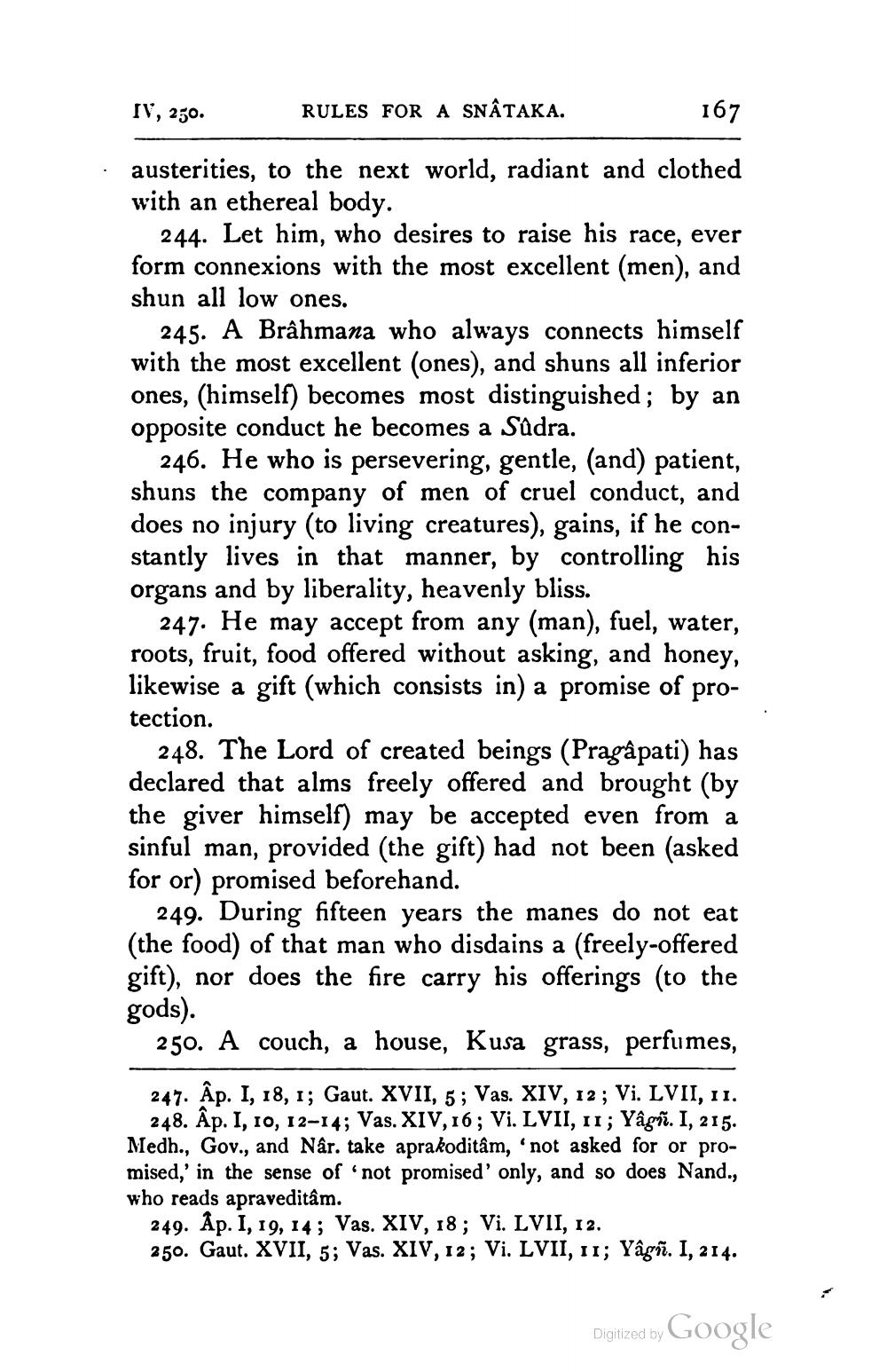________________
IV, 250.
RULES FOR A SNÂTAKA.
167
austerities, to the next world, radiant and clothed with an ethereal body.
244. Let him, who desires to raise his race, ever form connexions with the most excellent (men), and shun all low ones.
245. A Brâhmana who always connects himself with the most excellent (ones), and shuns all inferior ones, (himself) becomes most distinguished; by an opposite conduct he becomes a Súdra.
246. He who is persevering, gentle, (and) patient, shuns the company of men of cruel conduct, and does no injury (to living creatures), gains, if he constantly lives in that manner, by controlling his organs and by liberality, heavenly bliss.
247. He may accept from any (man), fuel, water, roots, fruit, food offered without asking, and honey, likewise a gift (which consists in) a promise of protection.
248. The Lord of created beings (Pragâpati) has declared that alms freely offered and brought (by the giver himself) may be accepted even from a sinful man, provided (the gift) had not been (asked for or) promised beforehand.
249. During fifteen years the manes do not eat (the food) of that man who disdains a (freely-offered gift), nor does the fire carry his offerings (to the gods).
250. A couch, a house, Kusa grass, perfumes, 247. Âp. I, I, I; Gaut. XVII, 5; Vas. XIV, 12; Vi. LVII, II.
248. Âp. I, I0, 12-14; Vas. XIV,16; Vi. LVII, II; Yag%. I, 215. Medh., Gov., and Nar. take aprakoditâm, 'not asked for or promised,' in the sense of not promised' only, and so does Nand., who reads apraveditâm.
249. Ap. I, 19, 14; Vas. XIV, 18; Vi. LVII, 12. 250. Gaut. XVII, 5; Vas. XIV, 12; Vi. LVII, 11; Yâgii. I, 214.
Digitized by Google




